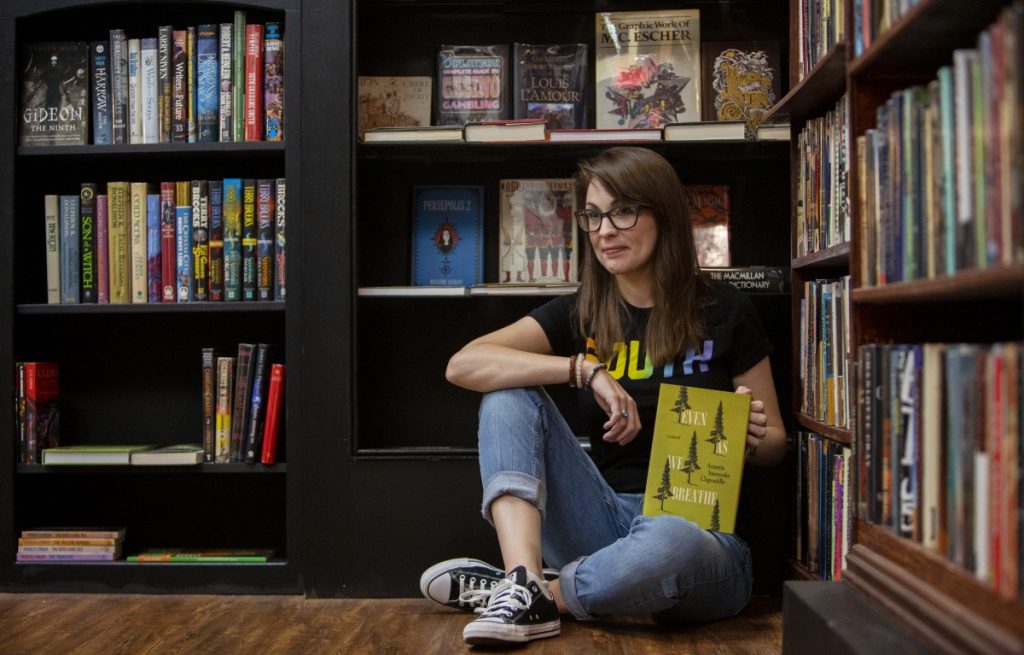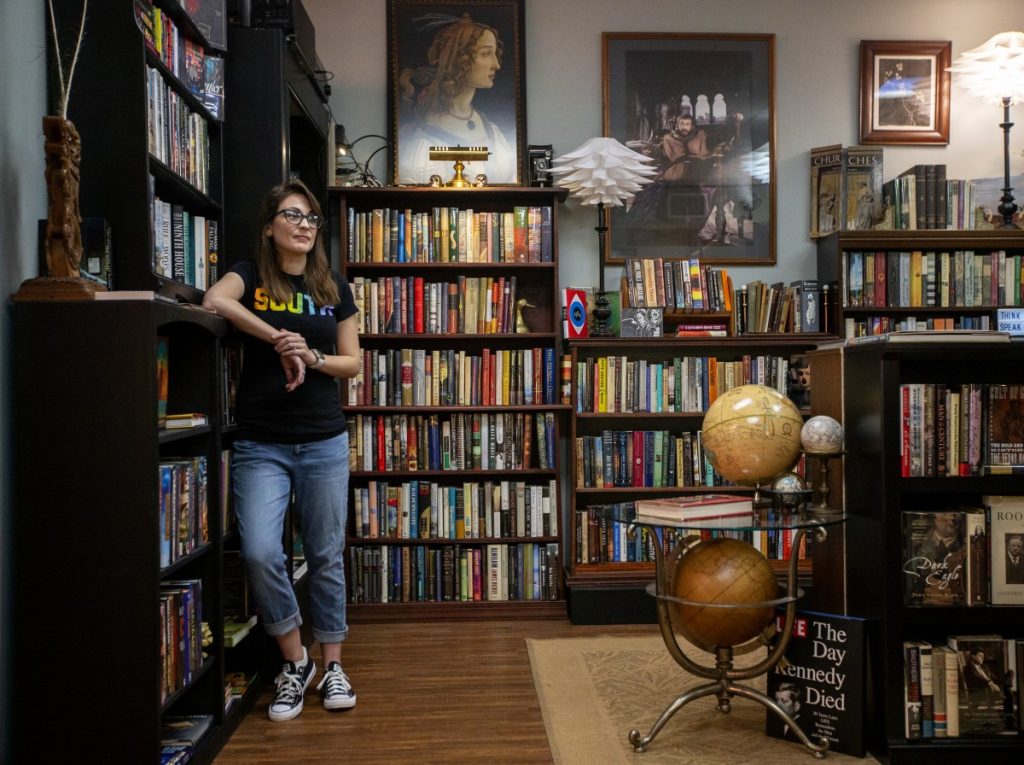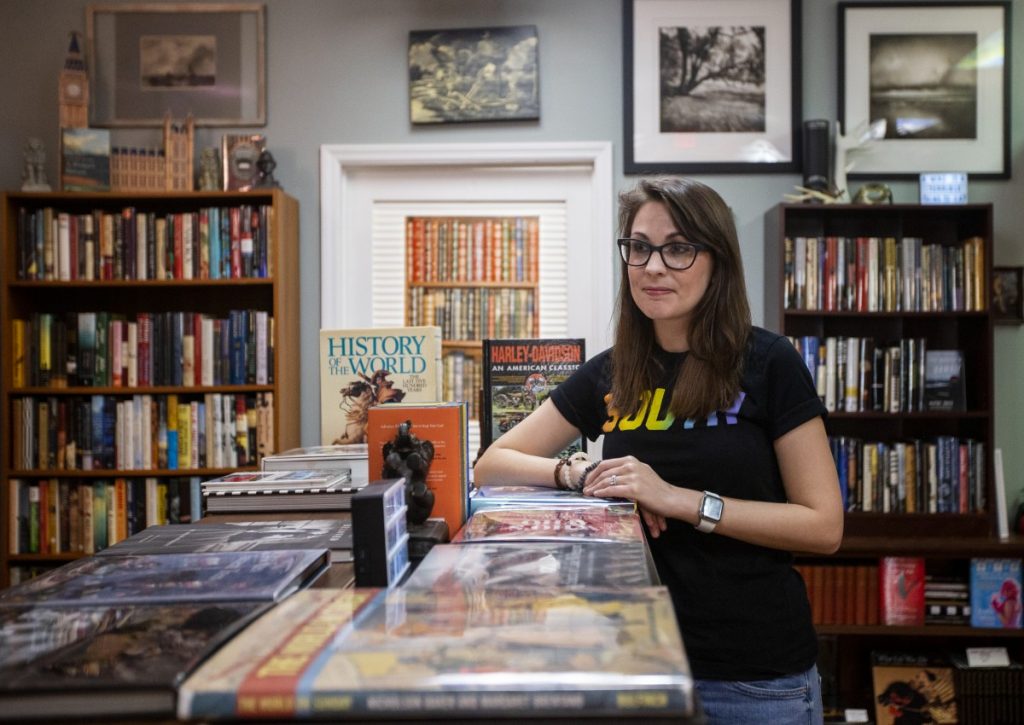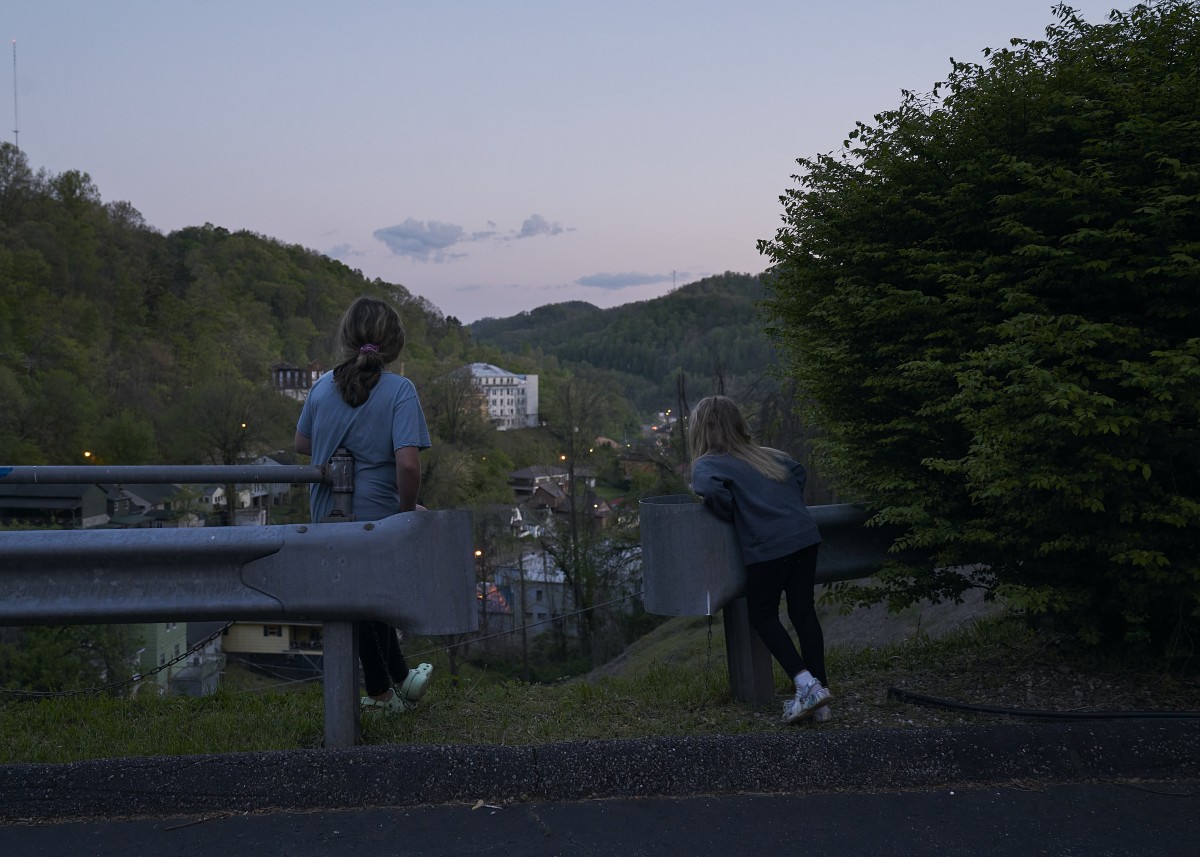If you’re not from Appalachia, Kendra Winchester wants to help you better understand the region. If you’re from Appalachia, she hopes to help you read about yourself. It’s why she started the ”bookstagram” account @readappalachia – an Instagram account focused on highlighting the work of Appalachian authors.
“Bookstagram is the bookish corner of Instagram,” Winchester explains. It’s where she went looking for an account dedicated to Appalachian literature. She looked for podcasts and on other social media platforms, too, but Winchester, who was familiar with the literary landscape of the region, struggled to find anything recommending regional writing to folks who wanted to know more.
“I was like, ‘Okay, fine. It doesn’t exist. I’ll make one.”
She was already immersed in the book world as co-founder and executive director of Reading Women, a podcast on the Lithub Podcast Network that discusses books by or about women. As a person with a disability, she also writes about and reviews audio books for Book Riot, one of the largest independent literature review sites in the country.
“I sprout book recommendations like a vending machine,” Winchester says, so she put her recommendation skills to work by building a resource for Appalachian readers and those outside the region who are interested in understanding it in a new way.

“It’s for Appalachian people to have a resource. My idea was you could scroll through the grid of the account and see a slew of recommendations,” Winchester explains.
“It’s also for other folks to realize that Appalachian literature is so broad. There’s such diversity, not only in who’s writing the books, but in the types of books and types of writing.”
To showcase that diversity, Winchester has created a bingo card for @readappalachia. Spaces include not only types of writing – such as Journalism and Kid Lit – but geographic distinctions within the wider region, too. You can aim to read Southern Appalachian and Central Appalachian literature as a way to get to know the complexities of the region that spans 420 counties across 13 states.
“Most of the time, the national narrative of Appalachia is told by people who aren’t from there, and they parachute in and do the whole, ‘I’m going to learn all about the region in three days,’” Winchester says. “Then, they write an article.”
“So often, these stories are taken out of our hands, and they’re always through someone else’s eyes. Or, people will promote Appalachian stories that already confirm a preconceived notion or stereotype that they believe.”
Winchester is hoping @readappalachia can help reverse those beliefs, while also giving Appalachian writers a chance at a bigger audience.
“Listen to our stories told by us.”

When Winchester says “our,” she means her, too. Born and raised in the region in Portsmouth, Ohio, she moved to the South for college and sees Appalachian literature lumped in with Southern literature all too often. With @readappalachia, she can separate the two while appreciating their similarities and sometimes overlapping themes.
It’s that nuance that drives her work with her Reading Women podcast, as well. Winchester realized that many women were not seeing themselves in mainstream literature.
“I had seen so many women realize that they weren’t reading parts of their identity. Maybe they were Muslim, but they’d never read Muslim women writers, or maybe they’ve never read Asian American writers. They had not been engaging with that part of their identity, that they had been taught the books that are pushed on people in college classrooms, or non-marginalized people, usually white, straight, and, in America, Christian,” Winchester says.
But, it was a creative writing workshop that opened her eyes to just how narrow the outsider perspective of Appalachia really is. When Winchester told the story of her grandfather, a fellow workshop participant asked, “Why did you write him like Paul Bunyon?”
The answer was obvious to Winchester: Her grandfather was a woodsman.
“And so I realized that not many people knew what it was like to grow up in Appalachia,” she says, outside of the national narrative. That narrative began to shift some in 2016 as the political climate forced national media to focus on rural communities and, in the process, write even more narrowed, less nuanced views on who lives here. It was clear to Winchester then that media coverage and literary publications alike needed voices from Appalachia.

“Listen to us as opposed to someone who has no real idea about the region,” she says. “We are not [all] going to agree, because we’re not a monolith. But at least you’re listening to us, as opposed to someone who has no real idea about the region.”
“We understand this in so many other areas of literature,” she says. “If you want to learn about Australia, you read books by Australian people. But people don’t seem to understand that about Appalachia, or they assume that we’re too ignorant or not skilled enough to be able to write our own stories.”
@readappalachia attempts to challenge those assumptions. As the extractive national narratives of Appalachia culture and people continue to be written so do its misperceptions and misrepresentations. But it’s literature does as well, Winchester says, and opportunities to get to know the region’s talented literary pool. Winchester’s @readappalachia is one way that an Appalachian writer and reader is taking back the power and showing a portrait of the region as only a local can know it.
What @readappalachia Currently Recommends
Winchester is currently working her way through “LGBTQ Fiction and Poetry from Appalachia,” from West Virginia University Press, which features authors Mesha Maren, Ann Pancake and Carter Sickels, and is edited by Jeff Mann and Julia Watts.
“I always recommend starting with anthologies,” Winchester says. “They have a wide range of folks in them.”
She’s simultaenously reading “Step Into the Circle: Writers in Modern Appalachia,” from Blair Publishing, and is an anthology edited by novelist Amy Greene and her husband Trent Thomson.
“This is like a little portrait of a writer that is written by another writer. For example, Silas House interviewed and wrote a piece on Wendell Berry.”
There is one classic that Winchester recommends to people both from and not from the region.
“The book, What You’re Getting Wrong About Appalachia by Elizabeth Catte, is the gospel tract that I give to people from the region to get them to understand the region, and that “Hillbilly Elegy” is problematic at best.” The New York Times bestseller is widely known as a portrait of the region, and one reason why those who are local to Appalachia want more people to read work by Appalachians instead of outsiders like author and Dayton, Ohio-native J.D. Vance.
Amanda Page is a Columbus-based writer from southern Ohio. Her work appears in Belt Magazine, The Daily Yonder, Literary Hub, and other outlets. She is the editor of The Columbus Anthology from Belt Publishing and The Ohio State University Press, and founder of Scioto Literary, a nonprofit that supports writers and storytellers in Scioto and surrounding counties in Ohio, Kentucky, and West Virginia. Follow her @amandadashpage.



